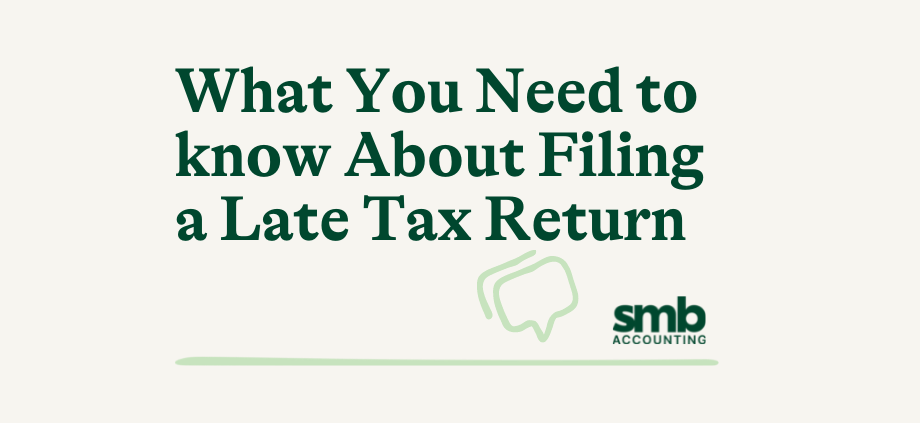What You Need to Know About Filing a Late Tax Return
If you run a business, you may find yourself struggling to keep up with annual tax obligations. Between managing your staff, your investors, and other challenges, it’s easy to forget about the responsibilities that come with owning a business in Australia. In this article, we’ll review what you need to know in case you miss tax deadlines.
What Are Tax Return Due Dates?
Tax due dates vary based on the type of business structure you choose. The Australian Tax Office (ATO) has a full list of lodgment due dates for the different types of returns and filings. It’s in your best interest to be informed about these dates so you can avoid any issues that come with late filings.
What Happens When You File Late?
If you lodge your tax returns late, you may be penalized by the ATO. This penalty can range from $180 to $900 for small businesses, depending on how long your returns take to arrive. The penalty can also add a rate of interest, starting from the due date of payment until your tax liabilities are paid. The interest rate at this stage is 7.04% for taxpayers
For those of you who cannot pay the ATO on the due date, be sure to contact the ATO about a defaulted tax payment arrangement. You can reach out to the ATO directly to request an extension to the due date for tax returns by calling them at 13-28-66.
What Can You Do to Avoid Late Tax Returns?
While it’s not ideal to lodge your business tax returns late, sometimes it just can’t be avoided. In case you end up lodging your business tax returns past the due date, it’s best to pay the outstanding tax as soon as possible.
If you have to pay tax for the income you received for the last financial year, you can make a tax payment before you lodge your income tax return. Tax payments are often due shortly before the income tax return is due or within a short time after that date.
The ATO can charge interest on any late payment of income tax liability, but you can prevent this from happening by making the tax payment before you lodge your tax return. If you don’t have all the information available to accurately calculate your tax liability, you can make an estimate and pay that amount as a down payment on your bill. Remember, the money will not count as a payment on your tax bill unless you file your return with the ATO.
Additionally, you need to pay off any outstanding tax returns from the previous two years. This can be accomplished by paying off the last year’s tax return entirely and setting up a payment plan for the current year. This will prevent your interest from continuing to compound on any previous years’ returns.
Conclusion
We hope this article proves to be useful when it comes to helping you deal with issues that come with filing late tax returns. To avoid any of these issues, it would be wise to lodge your tax returns in a timely manner. If you need more help with this, be sure to reach out to a professional accountant.
If you’re looking for an accountant on the Sunshine Coast to help you with your business’s finances, SMB Accounting is here to help. We offer various accounting services, such as individual tax returns, small business accounting, SMSF audits, trust account audits, special financial statements, and more. Learn more about how our accountants can help your business today!

